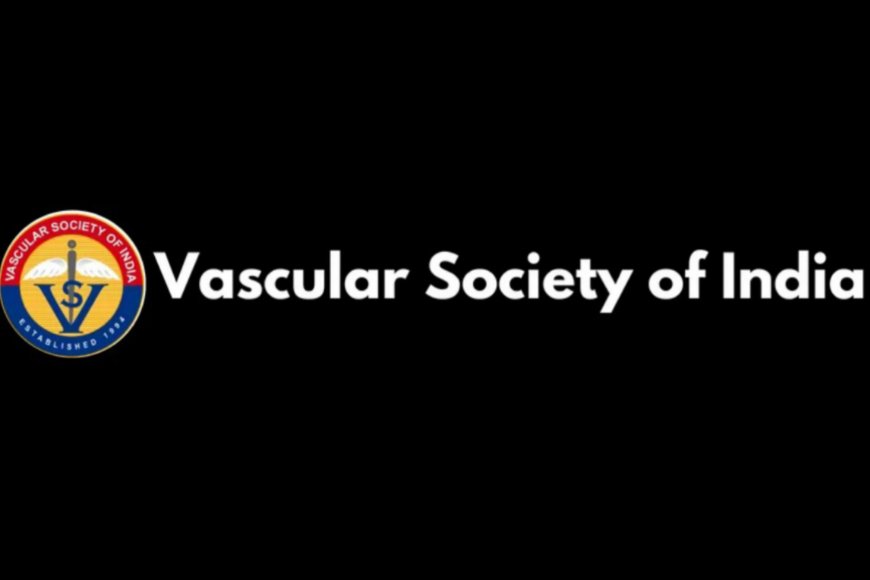Vascular Surgery and Vascular surgeon- let's Understand

The Vascular Society of India is organizing a Vascular Awareness Week from August 3rd to 9th to educate the public about vascular diseases. As we embark on this awareness initiative, let's delve into the world of vascular surgery and the experts who specialize in this field – vascular surgeons.
Vascular Surgery: An Overview
What is Vascular Surgery?
Vascular surgery is a super-specialty of surgery that focuses on diagnosing, treating, and managing conditions affecting the arteries, veins, and lymphatic system, excluding the heart and brain. It includes a combination of open surgical procedures, minimally invasive techniques (endovascular), and medical management.
Vascular surgeons are unique in that they offer complete care — from diagnosis to treatment to long-term follow-up, using both invasive and non-invasive strategies.
Who is a Vascular Surgeon?
A vascular surgeon is a doctor who has undergone:
-
MBBS + MS in General Surgery (or DNB)
-
Followed by a super-specialty training (MCh/DNB in Vascular Surgery)
They are trained to:
-
Treat diseases of both arteries and veins
-
Perform open surgery, endovascular procedures (like angioplasty and stenting), and hybrid procedures
-
Handle life-threatening emergencies like limb ischemia, ruptured aneurysms, or carotid stenosis
-
Manage chronic vascular conditions like varicose veins and diabetic foot ulcers
Diseases Managed by Vascular Surgeons
Arterial Disorders
1. Peripheral Arterial Disease (PAD)
-
Narrowing or blockage of leg arteries
-
Causes pain while walking (claudication), non-healing ulcers, or gangrene
-
Treatment: lifestyle change, angioplasty, bypass surgery
2. Aortic Aneurysms
-
Bulging/weakening of the aorta (abdominal or thoracic)
-
Risk of rupture = life-threatening
-
Treatment: Endovascular Aneurysm Repair (EVAR) or open surgery
3. Carotid Artery Disease
-
Narrowing of carotid arteries in the neck
-
Can cause stroke or TIA (mini-stroke)
-
Treatment: Carotid endarterectomy or stenting
4. Acute Limb Ischemia
-
Sudden blockage in an artery due to clot or embolism
-
Immediate threat to limb and life
-
Emergency surgery or thrombolysis required
5. Renal Artery Stenosis
-
Narrowing of kidney arteries → uncontrolled hypertension and kidney damage
6. Mesenteric Ischemia
-
Reduced blood flow to intestines
-
Acute (life-threatening) or chronic (causes post-meal pain and weight loss)
7. Traumatic Vascular Injury
-
Vascular surgeons repair arteries/veins injured in accidents or war injuries
Venous Disorders
1. Varicose Veins
-
Dilated, tortuous leg veins causing heaviness, itching, and ulceration
-
Treatment: EVLA (laser), RFA (radiofrequency ablation), foam sclerotherapy, or surgery
2. Deep Vein Thrombosis (DVT)
-
Blood clot in a deep vein, usually leg
-
Risk: Pulmonary embolism (clot travels to lungs)
-
Treatment: Anticoagulation, thrombolysis, IVC filters
3. Chronic Venous Insufficiency
-
Faulty valves in veins → leg swelling, pigmentation, ulcers
-
Managed with compression therapy or surgical correction
4. Venous Malformations and Vascular Tumors
-
Congenital or acquired abnormalities in veins
-
Treated with embolization, laser, or surgery
Lymphatic Diseases
-
Lymphedema (often secondary to cancer surgery or filariasis)
-
Causes massive limb swelling
-
Treatment: compression therapy, lymphatic bypass surgery, lymphovenous anastomosis
Vascular Access for Dialysis
-
AV Fistula creation, grafts, or catheters
-
Essential for patients with end-stage kidney disease
Other Specialized Procedures
-
Thoracic Outlet Decompression (for neurovascular compression)
-
Bypass surgeries – femoropopliteal, aorto-femoral, carotid-subclavian
-
Hybrid procedures – combining open and endovascular techniques
What Makes Vascular Surgeons Unique?
-
They don’t just operate — they prevent, diagnose, treat, and follow-up lifelong.
-
Proficient in Duplex ultrasound, CT angiography, MR angiography
-
Work closely with diabetologists, nephrologists, wound care teams
-
Often treat limb-threatening conditions and play a key role in amputation prevention.
Final Thought
"The vascular system is the highway of life. Vascular surgeons are its traffic managers — clearing blocks, preventing crashes, and repairing broken bridges."
As we observe Vascular Awareness Week, let's recognize the importance of vascular health and the role of vascular surgeons in maintaining it. If you're experiencing symptoms or concerns related to vascular health, consult a vascular surgeon today.







